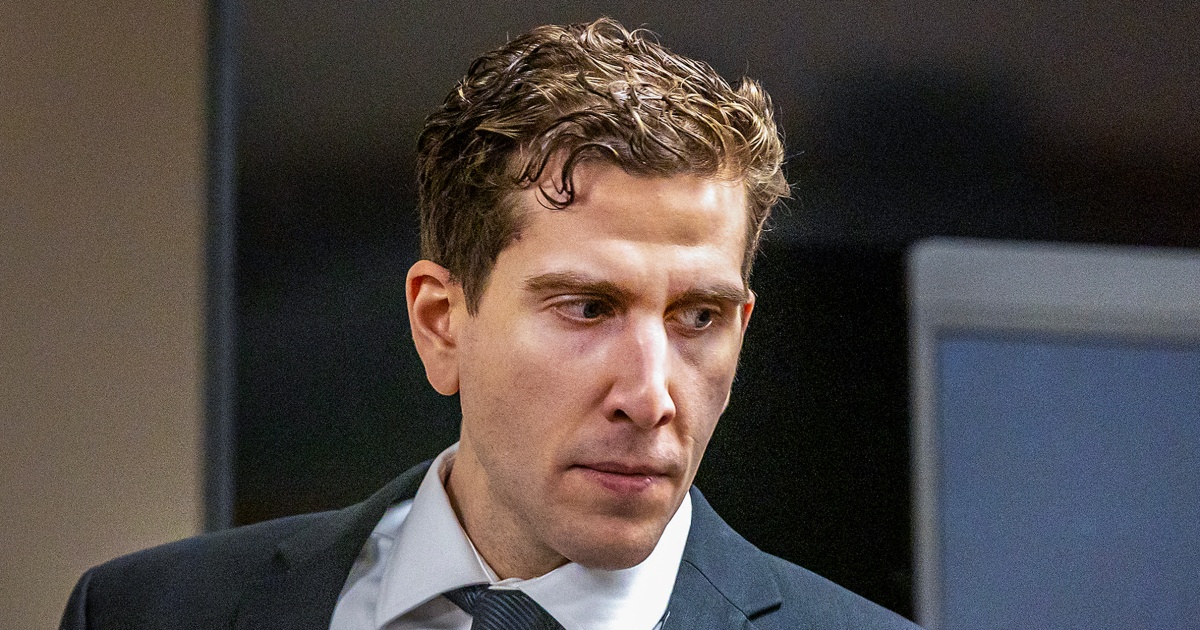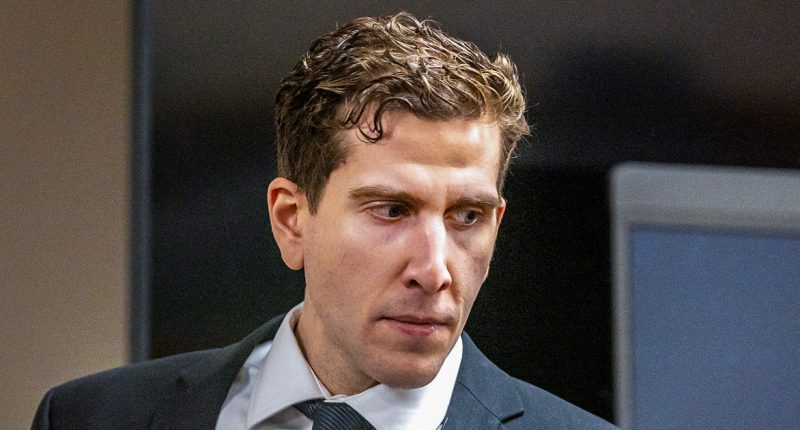
The legal team of the suspect accused of killing four University of Idaho students in 2022 has said that cellphone tower data proves he was out driving late at night and miles away when they were killed.
Attorneys for Bryan Kohberger, who was indicted for murder by a grand jury in May last year, said in a new court filing Wednesday that his alibi was confirmed by the location of his mobile device.
All four victims — Madison Mogen, 21, Kaylee Goncalves, 21, Xana Kernodle, 20 and Ethan Chapin, 20 — were stabbed to death in the early hours of Nov. 13, 2022, at their off-campus residence in Moscow, Idaho.
DNA from a knife sheath left at the crime scene led investigators to Kohberger, prosecutors said.
Kohberger’s legal team has previously argued that he was out driving alone at the time of the killings — but now they have pledged to call an expert witness they say can prove it using cellphone data.
Kohberger, who lives in the town of Pullman, Washington, 9.5 miles away from Moscow, was arrested in Pennsylvania in December 2022 and has pleaded not guilty. He was a doctoral student at the University of Washington studying criminal justice and criminology.
Public defender Anne C. Taylor filed legal papers in the County of Latah Wednesday in response to the state’s demand for details on the claimed alibi.
Kohberger’s team intends to rely on testimony from cell tower data expert Sy Ray, an experienced military and law enforcement instructor who they say can prove their client was miles away from Moscow at the time of the crime. Ray has testified in many criminal cases, including homicides.
A probable cause affidavit last year argued that security video showed a white Hyundai Elantra was spotted near the scene — investigators said this was driven by Kohberger.
But Wednesday’s filing says Kohberger’s car cannot be the same one as he didn’t travel that far east on the night in question.
“If not disclosed, Mr. Ray’s testimony will also reveal that critical exculpatory evidence, further corroborating Mr. Kohberger’s alibi, was either not preserved or has been withheld,” the filing said.
The filing said that Kohberger was an avid runner and hiker and that as the school year began this activity decreased and nighttime drives increased — something his attorneys say is proven by cellphone data and photographs he took of the night sky.
Previously, authorities obtained a search warrant for data connected to cellphones around in the area at the time of the killings. Kohberger’s did not show up in a search because he had turned it off, investigators say.
However, a separate search warrant issued on Dec. 23, 2022, provided Kohberger’s cellphone data for the 24 hours before and after the incident, the affidavit said. This showed that he left his home two hours before the killings and then turned his phone off, only to turn it on again afterwards, when it was seen traveling from Idaho to Pullman.
Later on in the day of the deaths, at 9 a.m., Kohberger went from Pullman to an area near the crime scene before returning.
Further analysis of cellphone data found he had been near the students’ home on King Road in Moscow at least 12 times in the six months before the killings, the affidavit said.
The deaths rocked the small community of Moscow, with 25,000 residents, and an 11,000-strong student population.
Source: | This article originally belongs to Nbcnews.com









